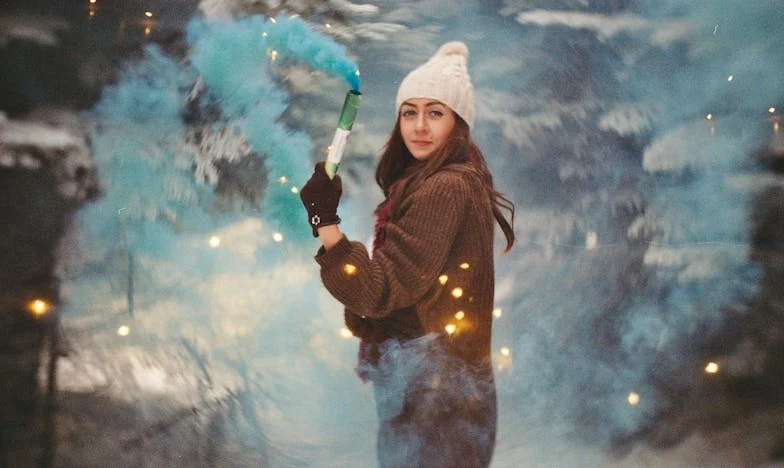Sweeping Away Shadows: A Janitor’s Story from Chicago
The rain had just stopped, and the streetlights flickered, barely illuminating the crumbling sidewalk. I hunched my shoulders against the October chill, pushing my battered metal cart across the slick courtyard of our apartment building. Garbage bags, half-full of soggy leaves and empty soda cans, threatened to tip over with every jolt. Above me, the windows glared down—some glowing with warm yellow light, others dark and indifferent. My shoes squelched in the mud, but tonight, for the first time in weeks, the usual lake-sized puddle by the front entrance was gone. I smiled. Maybe someone would notice. Maybe someone would care.
But as I reached for the last bit of trash, a window screeched open on the third floor. Mrs. Peterson, with her hair in curlers, leaned out and yelled, “John! You missed a spot by the playground. My grandson almost slipped!” Her words, sharp as broken glass, echoed through the courtyard. I wanted to shout back that I’d been here since sunrise, that my back ached, that the playground was flooded because the landlord wouldn’t fix the drains. Instead, I nodded silently, tipping my Cubs cap and tucking my chin down.
I heard laughter behind me. Two boys from 2B—Eli and Marcus—were kicking an old soccer ball through the wet grass, splattering mud across the sidewalk I’d just swept. “Hey John, you missed a spot!” one of them jeered, mimicking Mrs. Peterson. I tried to grin, but my hands tightened around the broom. My daughter, Emily, used to play out here, too—before our world changed.
Inside, my wife, Karen, was waiting. She’d found a second job at the diner on 63rd, and sometimes we barely saw each other before she collapsed, exhausted, onto the couch. Tonight, she was in the kitchen, the TV hissing static in the background, and I could see the tension in her face even before I closed the door.
“Did you talk to the landlord again?” she asked, her voice tight. “Emily’s asthma is worse. The mold in her room—John, we can’t keep living like this.”
I dropped the garbage bags by the door. “I tried. He says he’ll send someone next week.”
Karen’s lips pressed together. “He’s been saying that for months. You need to do more. Emily’s coughing all night. If we just had a little more money—”
“If I could get more hours, I would.” My voice trembled, anger and shame twisted together. “But I’m lucky they haven’t cut my shifts already.”
She turned away, wiping her eyes. I wanted to comfort her, to promise that things would get better, but the words stuck in my throat.
Later, as I sat on the edge of Emily’s bed, I listened to her wheezing in her sleep. Her room smelled of bleach and damp drywall. I brushed her hair away from her forehead. “Daddy, why do people always look at you funny?” she whispered, eyes fluttering open.
I hesitated. “Sometimes people don’t understand how hard I work. But you know what? I do it all for you. For us.”
She smiled—a small, brave smile. “I think you’re the best daddy.”
I kissed her forehead and tried to believe it.
The next morning, the courtyard was crawling with neighbors. Someone had slipped on the wet concrete, and suddenly, everyone had an opinion. Mrs. Peterson was out in her robe, shouting about lawsuits. Mr. Green from 1A was waving his cane, blaming the city for the broken lights. Even the boys from 2B watched from the swings, their soccer ball abandoned.
And then, the landlord showed up—a rare sight. He pointed at me, voice booming. “John, this is unacceptable. If you can’t keep things safe, I’ll find someone who can.”
My cheeks burned. “I do my best. The drains—”
He waved me off. “Excuses. You want this job, you fix it.”
I spent the day wading through freezing water, scraping mud from the corners, hauling broken branches. My hands bled. My knees ached. By the time the sun set, I was shivering and soaked to the bone, but the puddle by the entrance was gone.
That night, Karen massaged my shoulders, her hands gentle. “You’re not just a janitor, John. You’re holding this whole place together.”
“Doesn’t feel like it,” I mumbled. “Sometimes I think I’m invisible. Or worse—just something for people to blame.”
She squeezed my hand. “You’re not invisible to us.”
But I couldn’t sleep. I lay awake, listening to the rain start again, dreading what the morning would bring.
A week later, I was sweeping the courtyard when Emily ran up, waving a crumpled flyer. “Daddy, look! They’re having a meeting tomorrow about the playground. You should go and tell them what you need.”
I hesitated. “They don’t want to hear from me, kiddo.”
She grabbed my hand. “You don’t know that. Please?”
The next night, I stood in the crowded lobby, heart thudding. Neighbors argued about repairs, bills, whose kids were making too much noise. Finally, I raised my voice. “I know I’m just the janitor. But I’m doing everything I can. The drains are broken. The lights need fixing. I need help. We all do.”
Silence. Then Mrs. Peterson spoke, her tone softer this time. “He’s right. We need to talk to the city. Maybe a petition.”
Mr. Green nodded. “And I’ll call my nephew—he does electrical work.”
As people began to talk—really talk—I felt something shift. For the first time, I wasn’t just the guy with the broom. I was part of something bigger.
Later, as Emily hugged me tight, I wondered: How many of us are walking past each other, blind to the battles we’re fighting? If we really saw each other—really listened—could we change more than just a courtyard?
